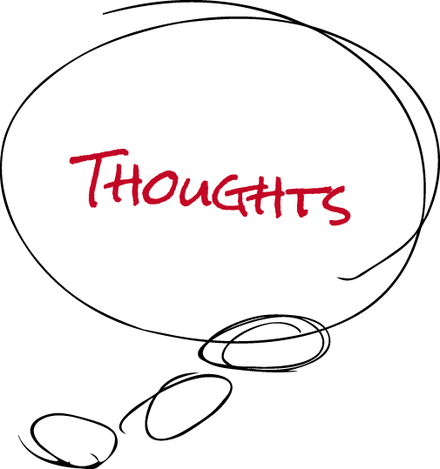|
Thanks for visiting - 2023 marks our 20th anniversary! This site is ad-free and supported by sales of our online courses. If you get value from what we write, click the link at the bottom of the page and read Day 1 of "Your inner narrative" to see if it's right for you...no email required. It's time for another installment of "Question and Answer Tuesdays!" This week, we had similar questions from both Stacy and Adam: "How does 'observing thoughts' fit in with meditating? Do you watch them, or do you focus your attention on your mantra? I'm not sure which of the two I do, or if I try to do them both at once. And, what does a meditation session look like as you move between the mantra and thinking?" These are common questions. It can be confusing, especially when you read different instructions from different teachers. First, observing doesn't imply an active component. This means when you observe thoughts, you don't analyze or interact with them. You simply watch them as they come into being, exist, and cease (i.e., as they arise and pass). Second, you can only observe thoughts when you become aware of them. You can't observe thoughts when you are lost in them. And, meditating is a formal exercise that helps you move from "lost in thoughts" to "aware of thoughts". When you are meditating, you have an anchor - the two most common are your breath and a mantra. You focus your attention on this anchor. At some point, you will notice your attention has wandered and you'll become aware of thoughts. You may notice it immediately, or it may take some time. Regardless, once you notice, simply guide your attention back to the anchor. When you do this over and over again, two things happen:
"Learning to observe what arises and passes without getting caught up in it" (#2 above) is a skill you develop while meditating. This skill is made possible by training your attention (#1 above). As you develop this skill, it allows you to make a choice in each unfolding moment:
Indulging is our normal choice, though it's a bit of a misnomer to call it "a choice." Our default state is unaware, following our minds wherever they lead, mindlessly indulging mental phenomena, reacting habitually to desires and aversions. This default state results in our struggles and suffering. Not indulging allows us to move away from this default state. As far as how this unfolds in a meditation session, here's a sample of what it may look like (using a mantra as the anchor):
And so it goes! <>
Our minds constantly create stories about what we experience, and we spend most of our time caught up in those stories. This results in the stress and struggles of daily life. "Your inner narrative" (our 15-day online course) can help you break that pattern. Read Day 1 here (no email required). Comments are closed.
|
